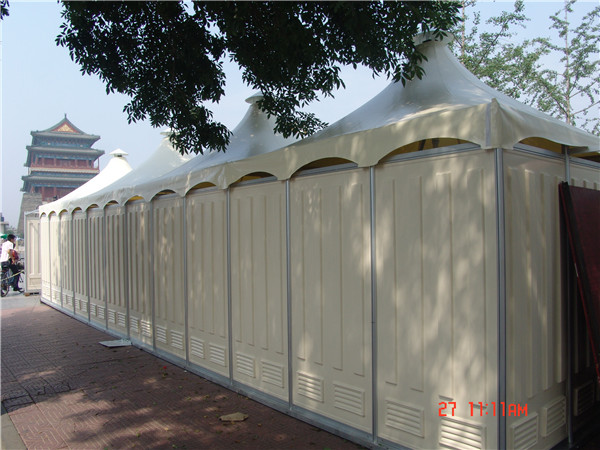Nov . 27, 2024 09:17 Back to list
High-Density Polyethylene Pipe for Efficient Sprinkler Systems in Agriculture and Landscaping
The Benefits of HDPE Pipe in Sprinkler Systems
In the pursuit of effective irrigation solutions, High-Density Polyethylene (HDPE) pipes have emerged as a preferred material for sprinkler systems across various agricultural and landscaping applications. HDPE, known for its durability, flexibility, and resistance to corrosion, offers numerous advantages that make it an ideal choice for modern irrigation techniques. Below, we explore the benefits of using HDPE pipe in sprinkler systems and how it contributes to sustainable water management.
Durability and Longevity
One of the standout features of HDPE pipe is its exceptional durability. Unlike traditional piping materials such as PVC or metal, HDPE does not corrode or rust over time. This resistance to harsh environmental conditions, including UV radiation, ensures that HDPE pipes can last for decades without significant wear and tear. As such, the installation of HDPE pipes in sprinkler systems minimizes the need for frequent replacements, ultimately reducing maintenance costs and downtime.
Flexibility and Ease of Installation
HDPE pipes are highly flexible, allowing for easier installation compared to rigid piping systems. This flexibility makes it possible to maneuver pipes around obstacles and adapt to various landscape configurations. Since HDPE can be heat-fused, it creates a strong, monolithic piping system that offers a reliable seal against leaks. The lightweight nature of HDPE pipes further facilitates transportation and installation, making them suitable for both large-scale agricultural projects and small residential gardens.
Resistance to Chemicals and Biological Growth
Sprinkler systems are often subjected to exposure to fertilizers, pesticides, and other chemicals that can compromise the integrity of the piping material. HDPE pipes are resistant to most chemicals used in agricultural settings, ensuring that the quality of water remains uncompromised. Furthermore, the smooth interior surface of HDPE pipes reduces the risk of biological growth and buildup of sediment, which can hinder water flow and efficiency in irrigation systems.
Environmentally Friendly Choice
hdpe pipe sprinkler

The production of HDPE pipes is less damaging to the environment than many alternative materials. HDPE is recyclable, and at the end of its life cycle, it can be reprocessed to create new products. Additionally, using HDPE pipes in sprinkler systems enables more efficient water management practices. The precise and controlled delivery of water reduces the risk of over-irrigation and evaporation, contributing to water conservation efforts.
Cost-Effectiveness
While the initial investment in HDPE piping may be higher than that of traditional materials, the long-term savings are significant. The durability and low maintenance requirements of HDPE pipes result in decreased operational costs over time. Moreover, the efficiency of using HDPE in sprinkler systems can lead to reduced water consumption and lower utility bills, making it a financially sound choice for both commercial growers and homeowners.
Versatility in Applications
HDPE pipes can be utilized in a variety of sprinkler system configurations, from drip irrigation to high-velocity systems for agricultural fields and landscaped areas. Their versatility enables agriculturalists and landscapers to design systems tailored to their unique requirements, ensuring optimal water distribution and plant health.
Enhanced Water Distribution and Efficiency
The use of HDPE pipes in sprinkler systems supports enhanced water distribution, reducing the likelihood of uneven watering. This capability is essential for achieving uniform moisture levels across diverse landscapes, promoting better crop yields in agriculture and healthier plants in landscaping. By ensuring that every plant receives adequate water, HDPE piping contributes to optimal growth and efficiency in water usage.
Conclusion
In conclusion, HDPE pipes are transforming the landscape of irrigation systems, providing a practical and sustainable approach to water management. With their durability, flexibility, chemical resistance, and cost-effectiveness, HDPE pipes serve various applications, appealing to both large-scale agricultural operations and individual gardeners. As water scarcity becomes an increasingly pressing issue, the adoption of efficient irrigation technologies like HDPE piping can play a significant role in promoting sustainable practices and ensuring that our water resources are preserved for future generations. When considering a sprinkler system, HDPE should be at the forefront of your material choices, linking both performance and environmental responsibility.
-
High-Quality PPR Pipes and Fittings Durable ERA PPR & PVC PPR Solutions
NewsJul.08,2025
-
Black HDPE Cutting Board - Durable, Non-Porous & Food Safe HDPE Plastic Cutting Board
NewsJul.08,2025
-
High-Quality CPVC Panel Durable HDPE & PVC Panels Supplier
NewsJul.08,2025
-
Double PE Welding Rod Supplier - High Strength, Durable & Versatile Welding Solutions
NewsJul.07,2025
-
High-Quality PVC-O Pipe Supplier Durable 75mm PVC Pipe & Connections Leading PVC Pipe Company
NewsJul.07,2025
-
HDPE Drainage Pipe Supplier – Durable & Corrosion-Resistant Solutions
NewsJul.06,2025

